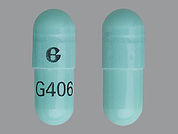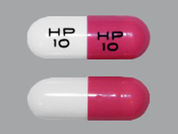Indomethacin
Generic of Indocin
What is Indomethacin used for?
Indomethacin is used to relieve pain, swelling, and joint stiffness caused by arthritis, gout, bursitis, and tendonitis. It is also used to relieve pain from various other conditions. This medication is known as a nonsteroidal anti-inflammatory drug (NSAID). It works by blocking your body's production of certain natural substances that cause inflammation. This effect helps to decrease swelling and pain. If you are treating a chronic condition such as arthritis, ask your doctor about non-drug treatments and/or using other medications to treat your pain. See also Warning section.
CHEMICAL NAME
DRUG TYPE
Indomethacin Prices
Searching for the lowest prices
What does Indomethacin look like?
View all Indomethacin Image Information (9)Indomethacin Frequently Asked Questions
See also Warning section.
Upset stomach, heartburn, headache, drowsiness, or dizziness may occur. If any of these effects last or get worse, tell your doctor or pharmacist promptly.
Remember that this medication has been prescribed because your doctor has judged that the benefit to you is greater than the risk of side effects. Many people using this medication do not have serious side effects.
This medication may raise your blood pressure. Check your blood pressure regularly and tell your doctor if the results are high.
Tell your doctor right away if you have any serious side effects, including: hearing changes (such as ringing in the ears), mental/mood changes (such as confusion, hallucinations), difficult/painful swallowing, signs of kidney problems (such as change in the amount of urine), symptoms of heart failure (such as swelling ankles/feet, unusual tiredness, unusual/sudden weight gain).
This drug may rarely cause serious (possibly fatal) liver disease. Get medical help right away if you have any symptoms of liver damage, including: nausea/vomiting that doesn't stop, loss of appetite, dark urine, severe stomach/abdominal pain, yellowing eyes or skin.
A very serious allergic reaction to this drug is rare. However, get medical help right away if you notice any symptoms of a serious allergic reaction, including: fever, swollen lymph nodes, rash, itching/swelling (especially of the face/tongue/throat), severe dizziness, trouble breathing.
This is not a complete list of possible side effects. If you notice other effects not listed above, contact your doctor or pharmacist.
In the US -
Call your doctor for medical advice about side effects. You may report side effects to FDA at 1-800-FDA-1088 or at MedWatch: The FDA Safety Information and Adverse Event Reporting Program.
In Canada - Call your doctor for medical advice about side effects. You may report side effects to Health Canada at 1-866-234-2345.



